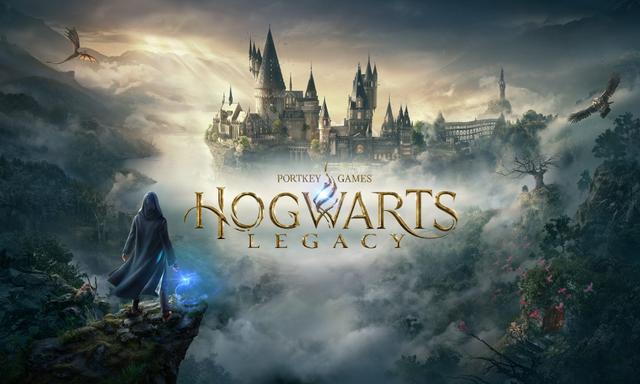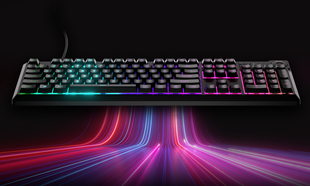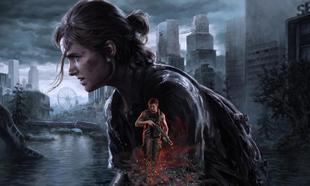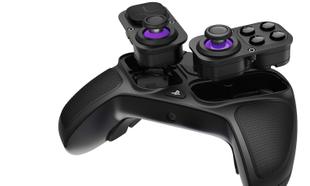'Hogwarts Legacy' is an interesting topic before one has even opened the game. Developed by Avalanche Software and Portkey Games, and released by Warner Bros. Interactive, the development path was beset by delays and controversy.
The general release was delayed twice, and the release for Nintendo Switch, PS4 and Xbox One was even further delayed. These delays aren’t necessarily a bad thing, as consumers prefer delayed releases over early, broken releases (see 'Cyberpunk 2077') but they are a double-edged sword as players then expect an even more polished product in the end.
While 'Hogwarts Legacy' isn’t perfect in terms of pure game mechanics, movement and combat, it is surprisingly well-made, especially from a relatively inexperienced studio. Initially, there were infrequent but very annoying significant frame rate drops when running on the recommended graphics settings, particularly when there was a lot of action on screen during combat sections. Lowering the default settings did help, but at the cost of making the game's world and effects look a little bit less magical. Unfortunately, some performance issues are being reported across consoles too, however on PC at least there are workarounds. With everything set to high, Hogwarts and the world around it look absolutely incredible, so hopefully patches in the near future will address these performance issues.
The actual gameplay is surprisingly tight, with mechanics being simple and intuitive for the most part – some weren’t explained very well and took a bit of getting used to. The third-person camera follows its subject faithfully and avoids many of the usual issues this camera mode runs into. This is important considering the not-insignificant amount of time you can spend creating your own character.
The character creator isn’t the most detailed we have ever seen, with pre-set faces which don’t allow for the level of customization seen in 'Elden Ring' or 'Skyrim', but there are still enough options to enable you to create a character unique of your own. Between the 15 different face shapes, 50 hairstyles, dozens of hair colours, as well as options for scars, freckles, eyes and eyebrows, and even voice tone, there are thousands of different combinations to ensure no two characters are the same. The voice tone also shows an area that needs improvement, as setting to anything above the middle results in a strange, tinny, disembodied voice. And considering your player character does a lot of talking, this quickly ruins the immersion. Thankfully this setting, as well as difficulty and accessibility options, can be changed at any time in the menu.
The real way to make your character stand out and shine, however, is through fashion. The collection of different styles would make a Kardashian jealous, and every new item you get with its better defence or offensive stats can be magically altered to look like your favourite item from the wardrobe. New styles are also offered as an incentive for completing the many collections, puzzles, and combat feats throughout the world. If you want your witch or wizard to look like a medieval knight, a dark art user or a dragon tamer, you’ll have to spend time exploring the world and interacting with the environment and your school friends. Thankfully these side activities are typically a lot of fun and breathe life into the wider world of Hogwarts Valley, and at worst are a simple puzzle that only take a few moments to complete.
When the game is running well, your character responds well to your inputs, quickly casting spells and dodging incoming attacks as you command. Movement is smooth although there are a few unexpected collisions with the environment every now and then, there are much less than one would have anticipated in a world of this side. Carefully used invisible walls keep your character in the playable area, and the worst complaint experienced in this area was a magical creature disappearing into a rock.
The magical setting of 'Hogwarts Legacy' means that gameplay mechanics which are commonplace in many exploration games actually make more sense here than they do in games which are supposed to be more grounded in realism. The best example of this is the Revelio spell, which is acquired very early in the game and is used throughout to highlight collectables, objects and puzzles to interact with, and enemies in your immediate surroundings. Other games have similar mechanics where the protagonist can just sense these things without much explanation, but including it as a spell in 'Hogwarts Legacy' means it can be used frequently without the player ever questioning its inclusion.
There are more than 20 spells, ranging from utility spells like Accio, offensive spells like Incendio, and of course the unforgivable spells, the most infamous Avada Kedavra – the killing spell. Most of these spells work well together during combat, offering different counters to each enemy type, and most can be upgraded throughout the story to deal more damage or change their effect to generally be more potent. On the other side of this, while there are many spells and combinations, there aren’t very many enemy types to fight. There is a reasonable variety of wild creatures which may be hostile, friendly or otherwise, but the many sentient enemies you’ll face are all very similar, and in the heat of battle it can be challenging to differentiate between them. Often it isn’t even necessary as certain spell combinations are effective against any enemy, negating the need for further experimentation. Overall the combat works well but isn’t groundbreaking.
The main story brings the player throughout the whole school year in Hogwarts, from the first of September to sitting the O.W.L. exams, and during this time you meet the faculty and students at the famous school of witchcraft and wizardry. These characters are wonderfully voiced and realised, and one of the best parts of the game is seeing how the protagonist's relationship develops with these other characters throughout. There was never an interaction that felt forced to further the story, they all engaged with each other letting their own personality direct the conversation.
The story itself keeps the player interested and is well-paced, building urgency towards the climax, then releasing the character back into the world to continue exploring or get back to any unfinished business they may need or want to complete. There is some unexplained backstory and a few minor plot holes, but these can be forgiven as the story itself builds on and is a welcome addition to the existing Harry Potter Wizarding World lore.
The game is well-rounded and very entertaining, reasonably polished and well-finished compared to many AAA releases of late, but not without its issues. If you are a Harry Potter fan and gamer, it is easy to recommend. Even if you’re not a Harry Potter fan, the game is still worth your time but as you may not be as forgiving it’s important to manage expectations. The game mechanics and learning curve are gentle enough that it is still very accessible to people who don’t consider themselves gamers, and offers a range of difficulty settings to accommodate people of all different skill levels.
'Hogwarts Legacy' was reviewed on PC with 34 hours of playtime, and all story missions completed










































































